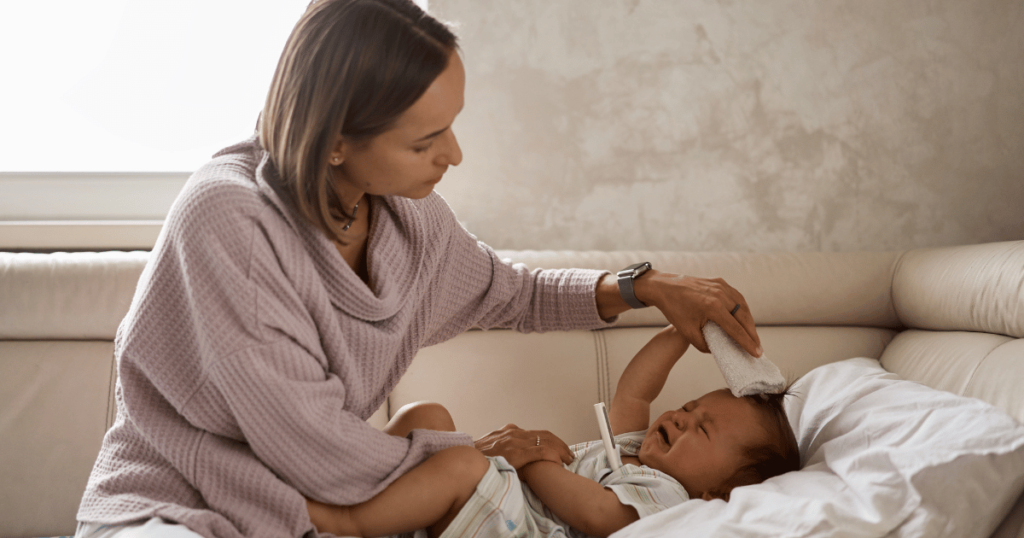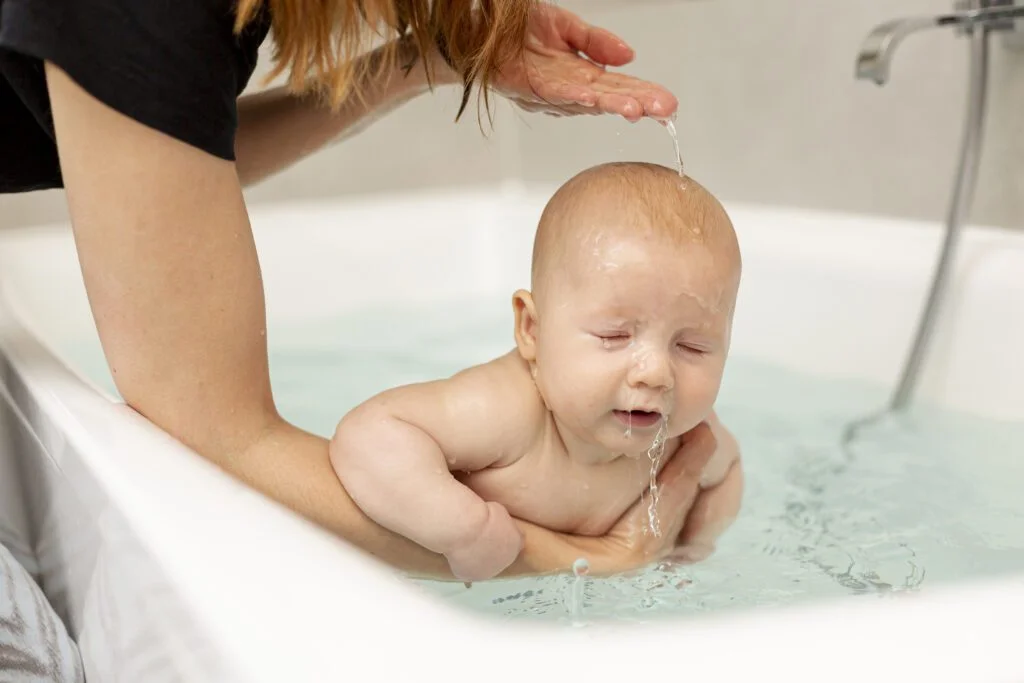Introduction
Seeing your baby sick can be tough, but with the right care, they can recover quickly. Babies have delicate immune systems, so it’s important to know how to provide comfort and care during illness. In this guide, we’ll discuss 7 simple ways to care of baby when sick, from managing a fever to keeping them hydrated. These easy tips will help ease your baby’s discomfort and promote a speedy recovery.
#1 Monitor Your Baby’s Fever
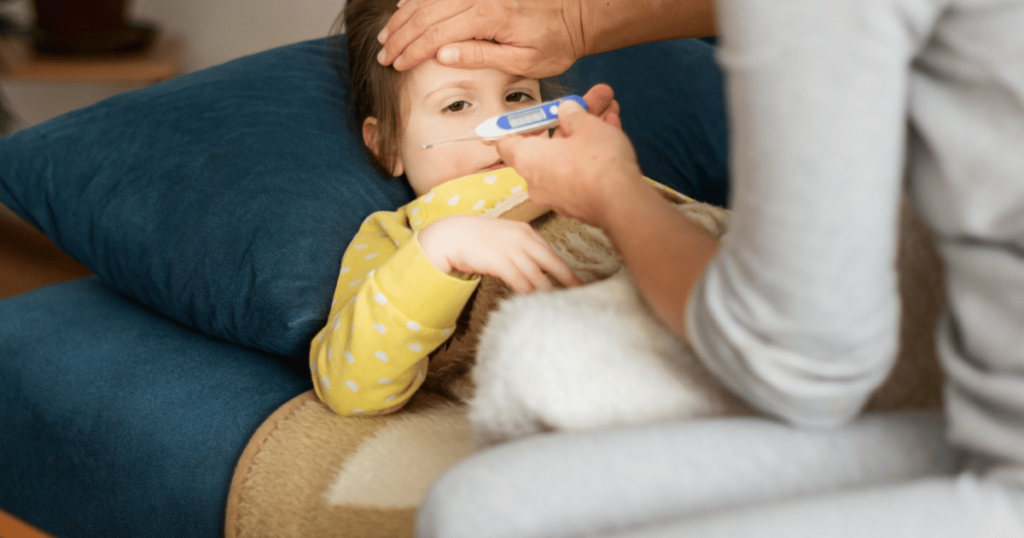
One of the most common signs of illness in babies is a fever. Always keep a thermometer handy to check your baby’s temperature. A fever means your baby’s body is fighting off an infection. However, it’s important to keep the fever in check. If your baby’s temperature rises above 100.4°F (38°C), consult your pediatrician. You can also use fever-reducing medications like acetaminophen if recommended by your doctor.
What is a normal temperature for a baby?
A normal temperature for babies is around 97.5°F to 99.5°F. Anything above 100.4°F may indicate a fever.
#2 Keep Your Baby Hydrated
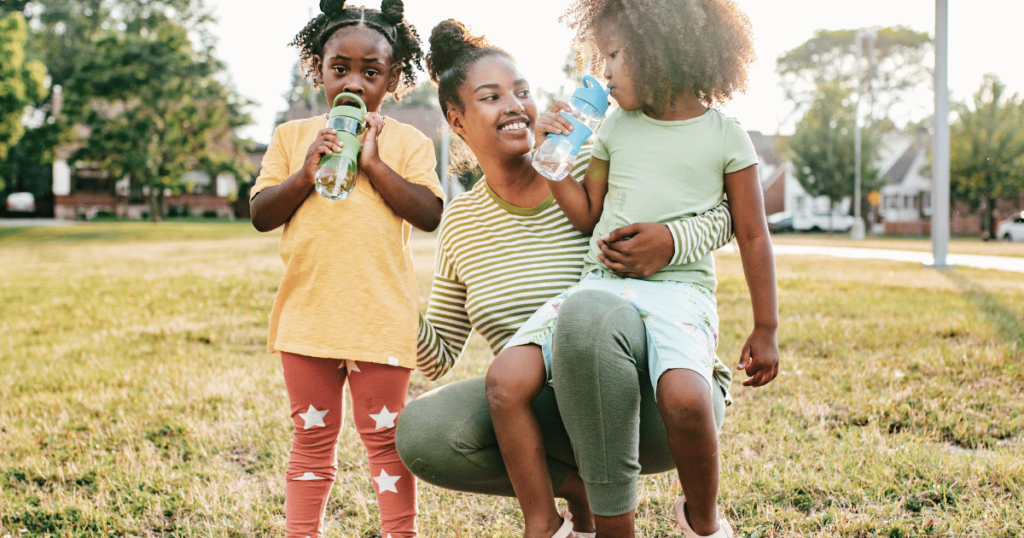
When babies are sick, they can lose fluids quickly, especially if they have a fever, vomiting, or diarrhea. Keeping your baby hydrated is essential to their recovery. If they’re breastfeeding, continue feeding as usual. If they’re older, offer water in small amounts. Electrolyte solutions can also help, but always consult your pediatrician before introducing them.
How do I keep my baby hydrated when sick?
Offer breast milk or formula regularly, and if your baby is older, give small sips of water throughout the day.
#3 Create a Calm and Comfortable Environment
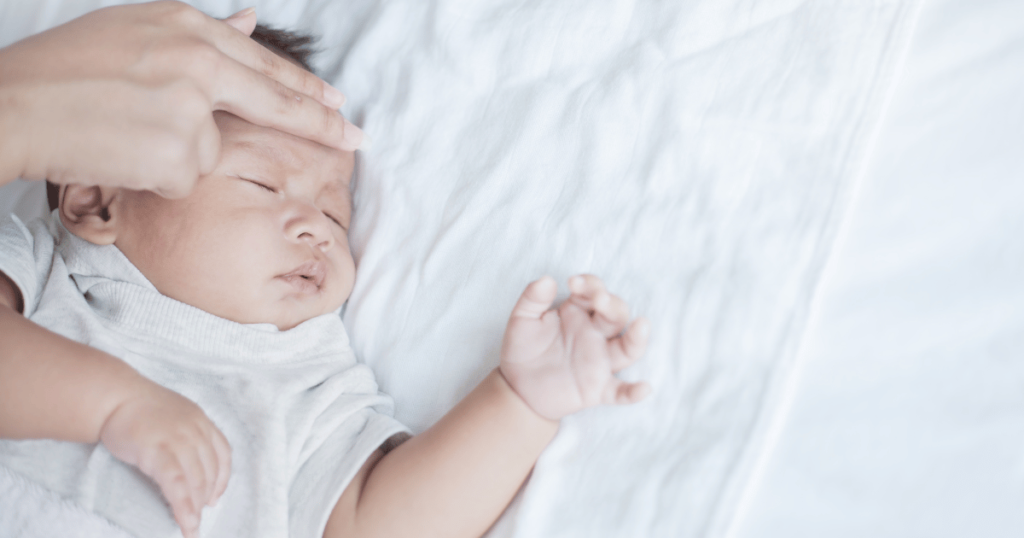
Rest is one of the best ways for your baby to recover from illness. Make sure their sleeping space is calm, quiet, and comfortable. Opt for lightweight blankets and maintain a comfortable room temperature. Too much noise or activity can make it harder for your baby to rest, so create a peaceful environment that promotes healing.
How can I help my baby sleep better when sick?
Ensure their room is quiet, use light blankets, and maintain a comfortable room temperature to help your baby sleep better during illness.
#4 Use a Humidifier for Easy Breathing
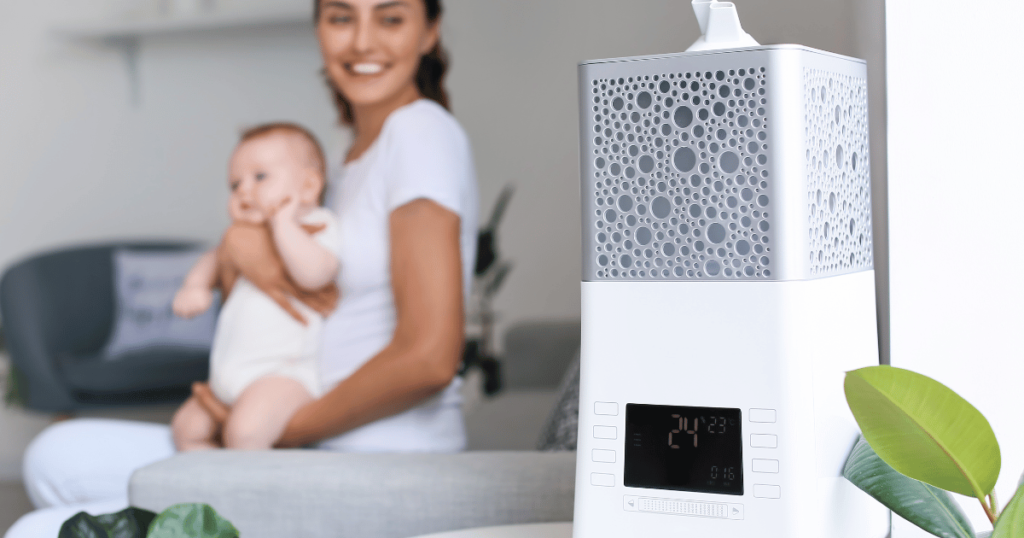
If your baby has a cold or congestion, a humidifier can work wonders. It adds moisture to the air, making it easier for your baby to breathe. This is especially helpful if they’re struggling with a stuffy nose. Just be sure to clean the humidifier regularly to prevent bacteria from building up.
How do humidifiers help sick babies?
Humidifiers add moisture to the air, which helps relieve congestion and makes breathing easier for babies with colds.
#5 Provide Plenty of Comfort and Cuddles

When babies are sick, they need extra comfort. Holding, rocking, and cuddling your baby can help soothe them and reduce their stress. Your touch provides them with a sense of safety, which is important for their emotional well-being during illness. Don’t worry about spoiling them; when your baby is sick, extra affection is exactly what they need.
For more advice on sunscreen safety for babies, check this guide from the American Academy of Dermatology.
How can I soothe a fussy baby when sick?
Cuddling, rocking, and offering soothing words can help calm your baby and make them feel more secure when they’re feeling unwell.
#6 Pay Attention to Feeding
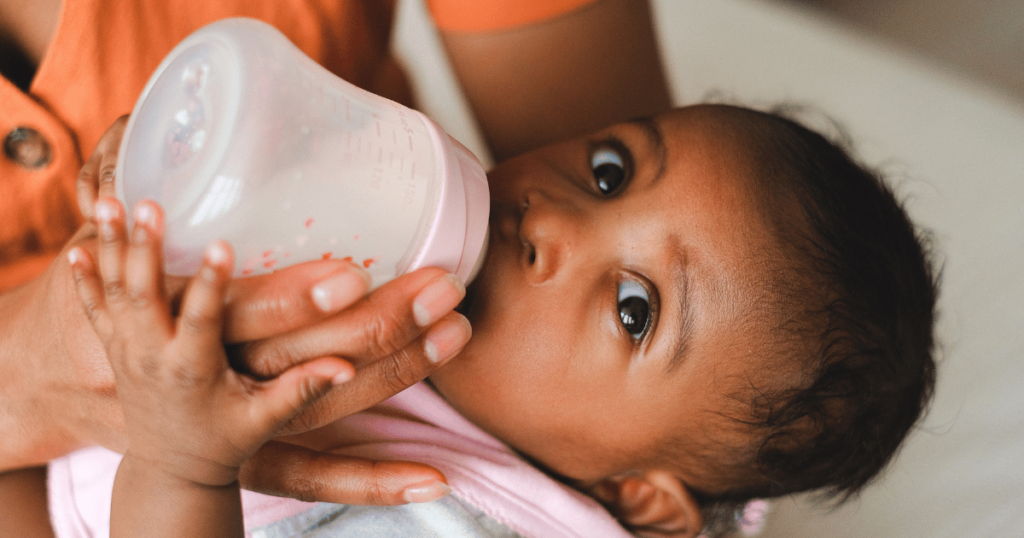
When your baby is sick, they might not want to eat as much. This is normal, but it’s important to make sure they’re still getting enough nourishment. Offer smaller, more frequent feedings, and don’t force them to eat if they’re not interested. If they’re eating solids, stick to gentle foods that are easy on the stomach, like mashed bananas or plain rice.
What should I feed my baby when they are sick?
Offer small, gentle meals such as breast milk, formula, or bland solids like mashed bananas or plain rice to keep their energy up.
#7 Follow Your Pediatrician’s Advice

Always consult your pediatrician when your baby is sick. They can offer specific advice based on your baby’s symptoms. Follow their guidance on medication, feeding, and care. If your baby’s condition doesn’t improve or they show signs of worsening symptoms, don’t hesitate to reach out again for further assistance.
If your baby is under three months old and has a fever, contact your doctor immediately. Newborns have weaker immune systems and need close monitoring when sick.
When should I call the doctor if my baby is sick?
Call your pediatrician if your baby has a high fever, is under three months old with a fever, or if their symptoms worsen.
Additional Tips for Caring for a Sick Baby

- Use Saline Drops for Stuffy Noses: Saline nasal drops can help clear your baby’s congestion.
- Dress Comfortably: Keep your baby in lightweight, breathable clothes.
- Monitor Symptoms Closely: Watch for any signs of dehydration or worsening symptoms.
- Encourage Rest: Make sure your baby is getting plenty of sleep to help their body heal.
- Stay Calm: Babies can sense when you’re stressed, so try to remain calm and patient.
Conclusion
Caring for a sick baby can be overwhelming, but with these 7 simple ways to care for your baby, you can help them recover quickly and comfortably. Remember to stay patient, offer plenty of comfort, and consult your pediatrician when needed. By following these tips, you’ll create a supportive environment that promotes healing and provides relief for your little one.
Other References
- American Academy of Pediatrics (AAP)
- What to Expect – March of Dimes
- KidsHealth from Nemours
- American Dental Association (ADA)
- WebMD
- What to Expect
- BabyCenter
- Verywell Family
- The Spruce
- Healthy Children
More to Read
- How to bathe a newborn baby in 13 steps: The comprehensive guide
- Getting the temperature just Right: A guide to baby bath water
- Bath Time: How often should you wash your little one
- Baby Bathtubs: The Best 5 Ways to Store Baby Bathtubs in 2024
- 4 Steps to Choose a Collapsible Baby Bathtub in 2024
- The Best 5 Baby Bathtubs for Small Space in 2024
- The Best 5 Inflatable Baby Bathtubs In 2024

